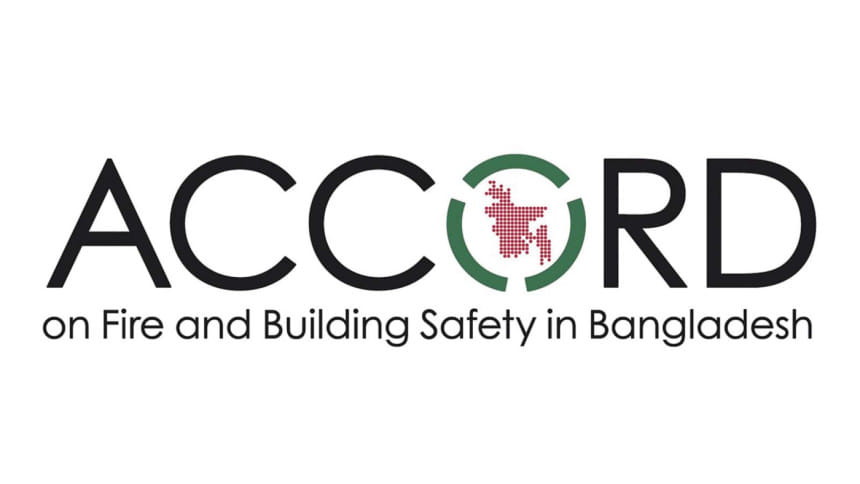If Accord is doing more harm than good, why are we not speaking up?

Whenever there is any news on the Accord, we can almost sense the fierce debate between owners and workers about to follow. Yet, despite being the bridge between the two sides, mid-level executives like me are always left out of such conversations. It is a wonder that our opinions don't seem to matter; even if they do, not many of us are willing to come forward and share them.
There is a common conception that all the good, compliant and green factories in Bangladesh exist because of the Accord. The usual narrative is that, without such a pact, many factories would collapse or catch fire on a regular basis. Although it is somewhat true, the opinion of the managerial people directly involved in implementing the "corrective action plans" wouldn't just vary—it would be the polar opposite.
Hence it almost felt like a triumph when two years ago I read about a conference where the BGMEA's former president Rubana Huq clearly said the conditions being imposed by the Accord were harming the apparel industry. I remember feeling delighted to see that someone was finally protesting publicly!
Among our small and scattered community of executives, it seemed almost too good to be true, given the Accord's extension earlier. It is evident that every factory, having the most skin in the game, is too wary of such one-sided regulations to support its stay any longer. So, how come none of them criticise its shortcomings openly? And, if the Accord was so unjustified, why did only one factory go to the court (Smart Jeans Ltd in Chattogram), while the rest did not?
The prime reason has to be the reaction (or punishment?) from the brands. As I was reading numerous news on the new Accord formation, I couldn't help but notice that all the responses in opposition were "anonymous."
I recall a piece where Mostafiz Uddin, managing director of Denim Expert Ltd, frankly admitted to being blacklisted by buyers for revealing their names after they didn't pay for orders in the wake of the Covid-19 pandemic. As the founder of Denim Expo as well as one of the most internationally acclaimed faces when it comes to sustainability, Mostafiz is surely not an easy target; yet, his business has taken the heat. Not many of the hundreds of his counterparts can claim to have similar or even remotely close footing in this trade. Since one's entire business falls at risk for objecting to the vile crime of non-payment with no protection whatsoever, criticising the Accord will not only hamper business, but also result in factories being tagged as "anti-compliance."
The Accord did a lot of good. It stirred us in ways that we needed decades ago. Still, there were—and most certainly are—so many better and more thoughtful alternatives to achieve the same outcome. Accord is a legally binding agreement between trade unions and brands, but not us. Even its new form, the International Accord on Health and Safety in the Textile and Garment Industry, completely disregards the factories' involvement in policy making. So, if a garment manufacturer fails to comply with its requirements, however impractical or illogical they might be, the brand either cuts business ties with it or faces legal repercussions from the workers' unions. Our country's laws and local jurisdiction have not been taken into account. It is as if the buyers would play the role of a referee in a match where workers and the factory management fight each other.
This "policing" comes with unchecked power that giant brands have already been exerting over supply chains. We are not China, who can simply wipe off a brand (H&M) from its map for nonconformity. In Bangladesh, equal and opposite reaction doesn't occur. So, unless you have nothing else to lose (like the factory who went to court), the best way to deal with it is to keep quiet.
It's only understandable that questioning the Accord angers the workers' representatives, who got a much needed but long forgotten role to play at the policy-making level through this. We all want safety at workplace, but not with the strings attached with the Accord. My father had joined the garment sector before I was born. I started working in a factory while I was still an undergraduate student. I survived Rana Plaza and its aftermath. As I have seen during my time in this trade, the fundamental issue that stops ensuring safer working environment is the absolute imbalance of power—not a few noncompliant owners at the helm. We must first address that elephant in the room, and establish the buyers' financial involvement in the production process. As for the safety and compliance concerns, international pressure, intense competition among suppliers, and authorities like the RMG Sustainability Council (RSC) will do more than just fine to address those issues.
Nurul Muktadir Bappy is chief operating officer at Panna Traders. He has nearly 10 years of experience in the textile and garment industry.

 For all latest news, follow The Daily Star's Google News channel.
For all latest news, follow The Daily Star's Google News channel. 



Comments